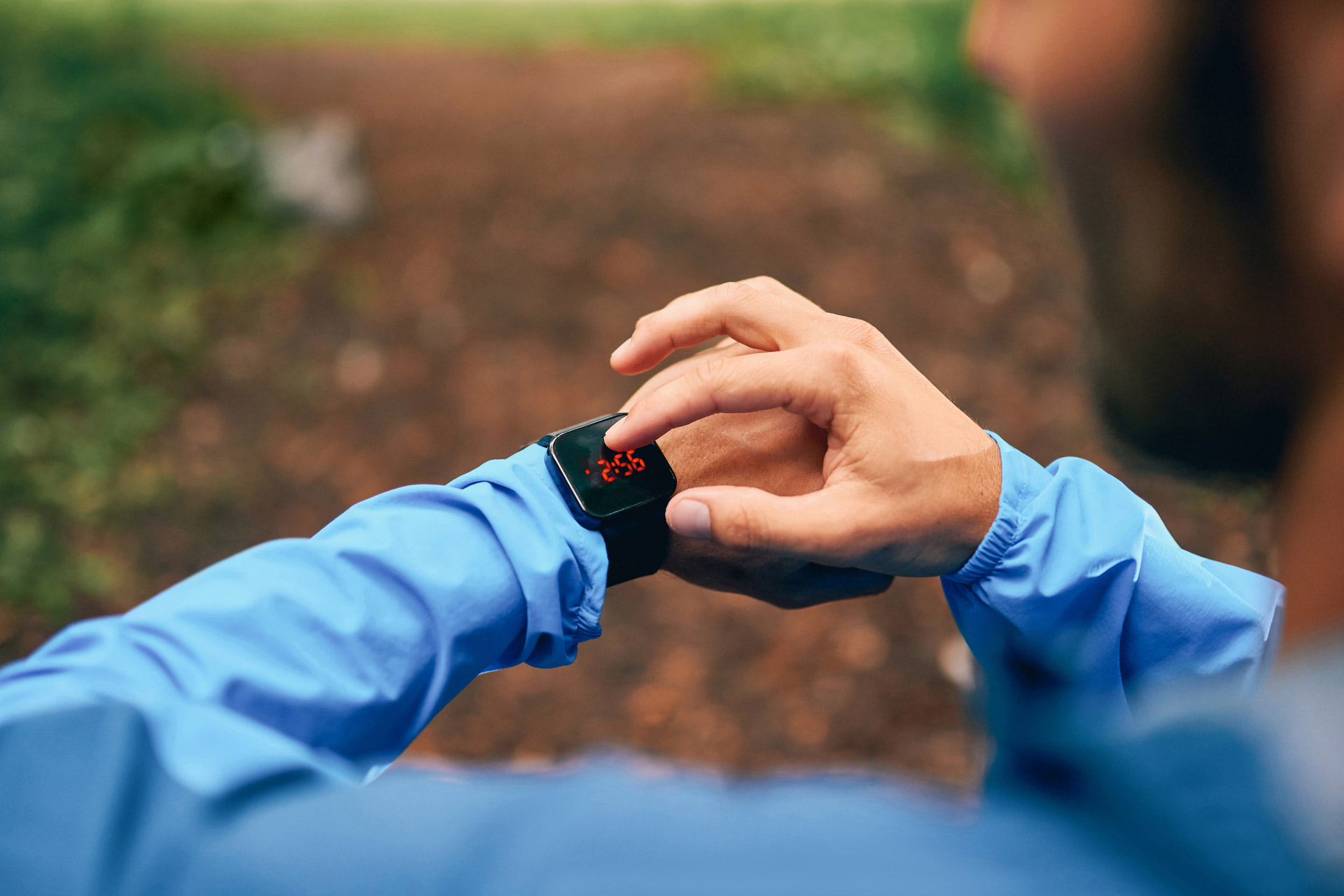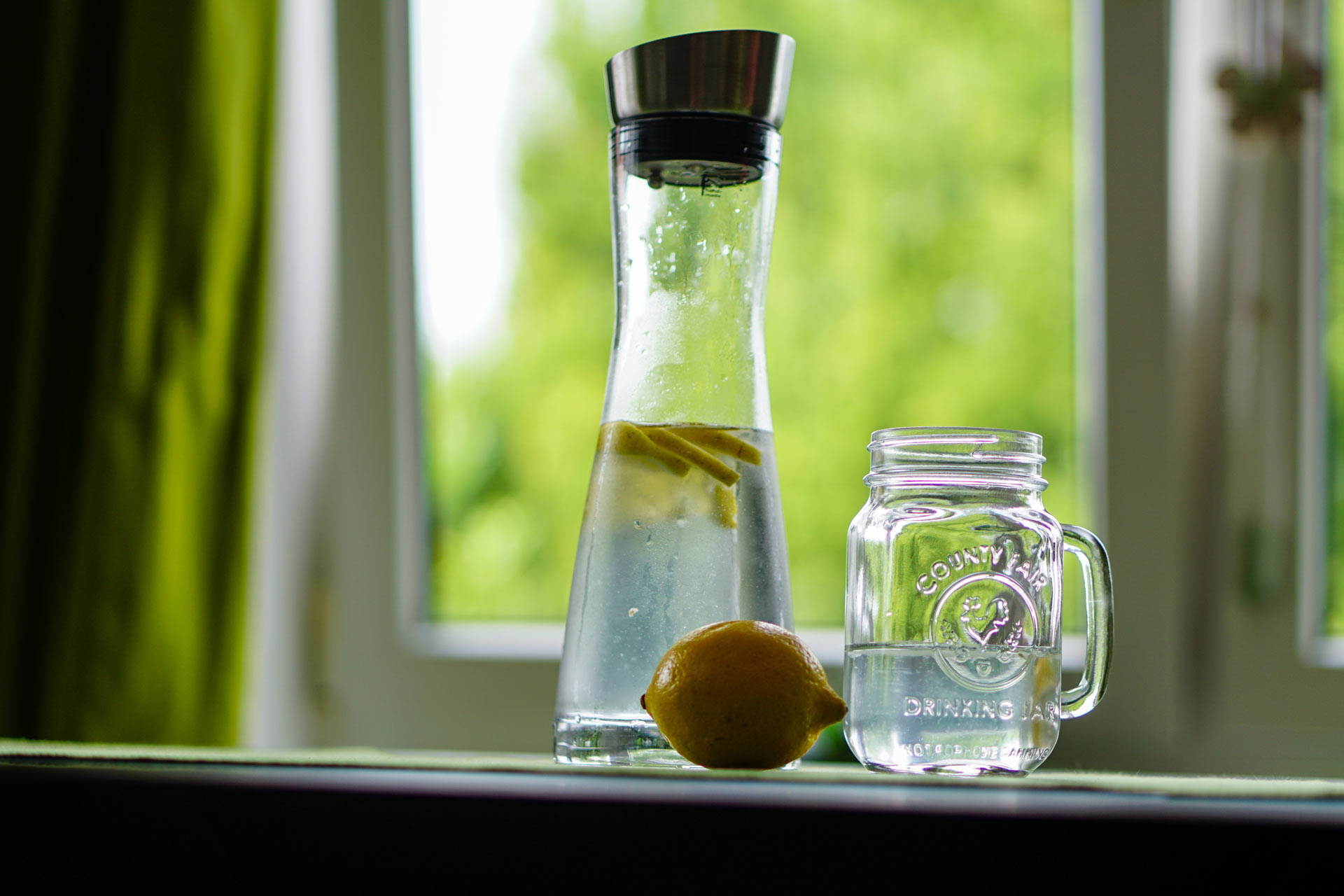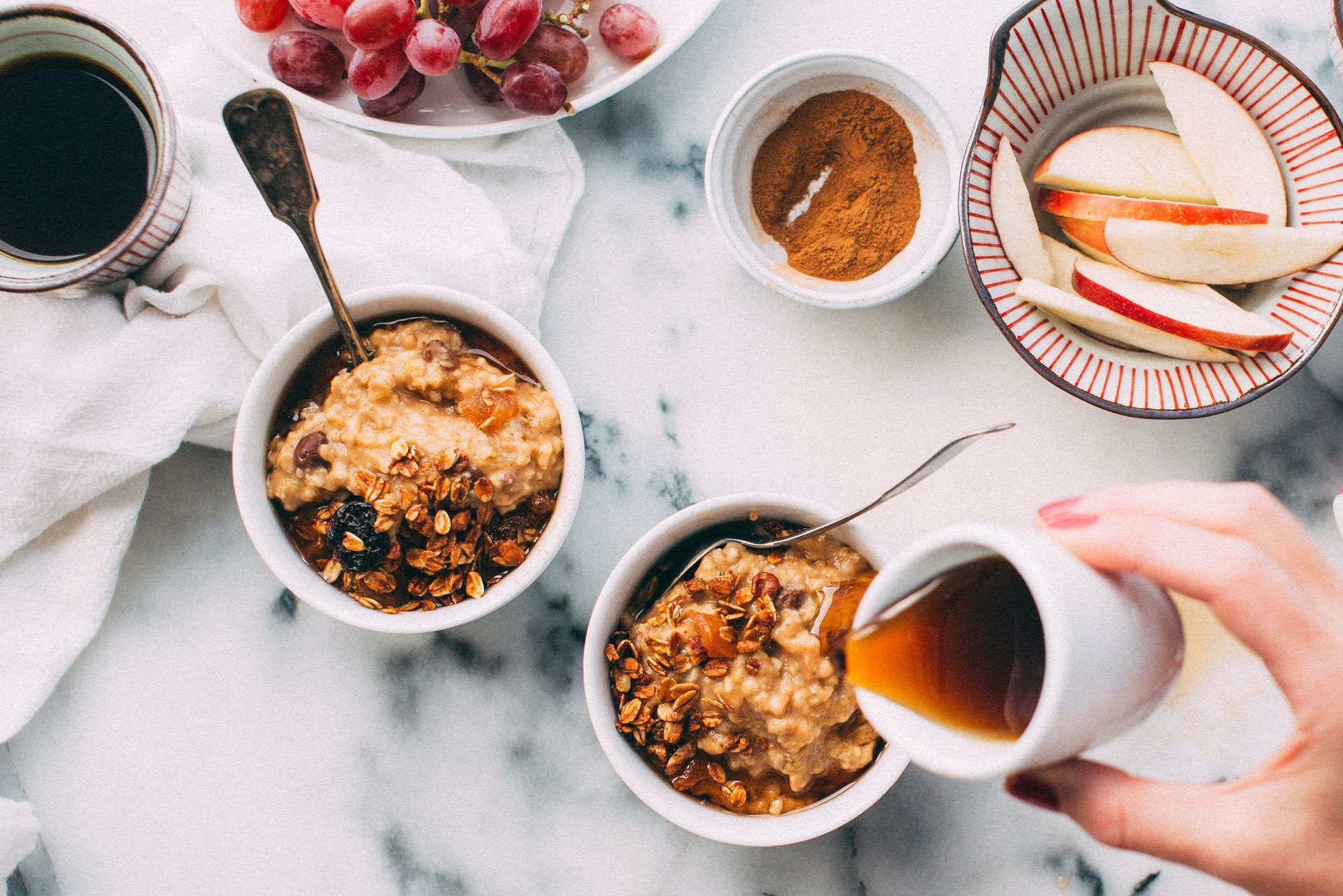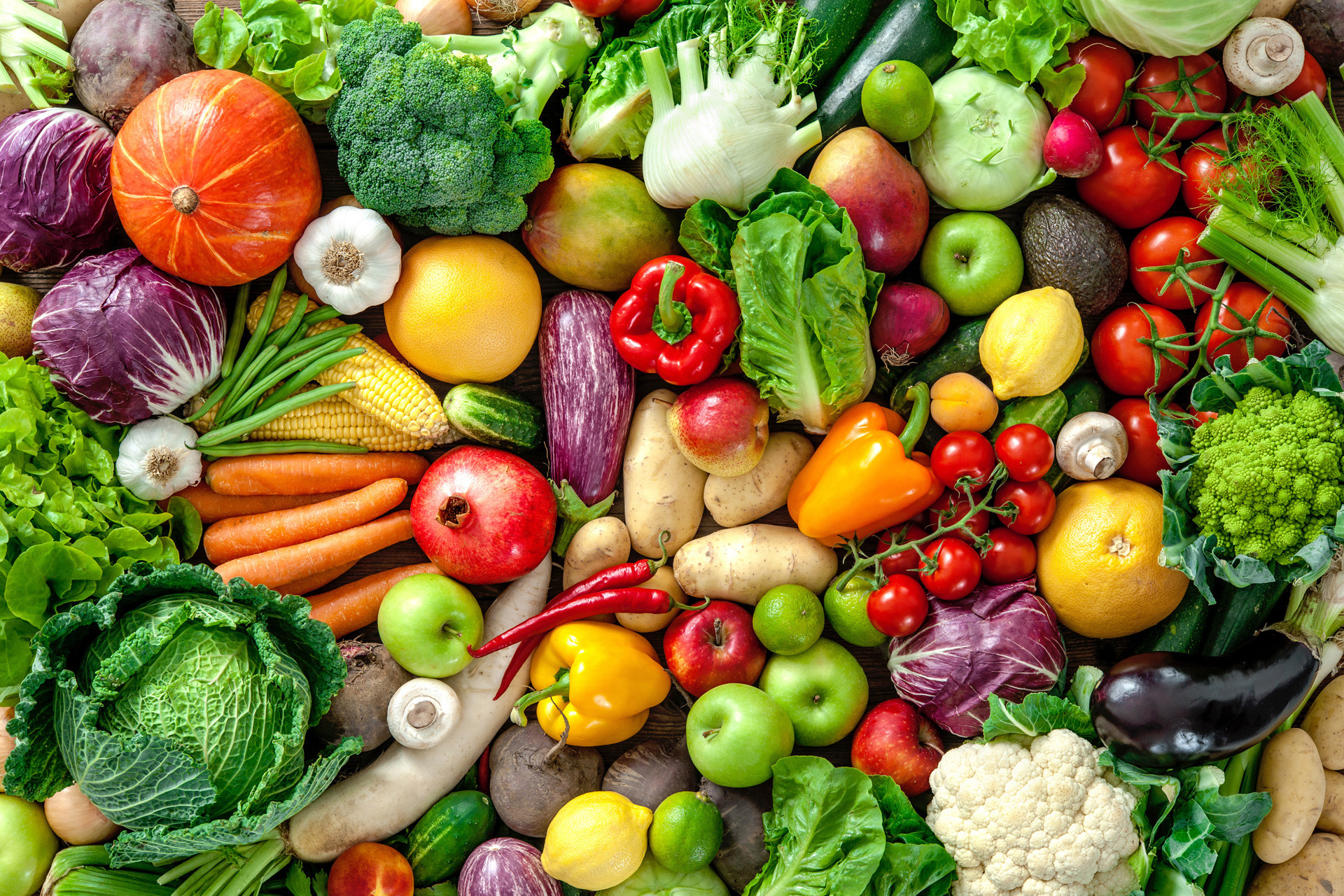The 10,000 Steps A Day Debate – Plus 4 Other Health Myths Busted
By
9 months ago
Should we swear by the magic numbers?

Are you addicted to tracking your step count? You’re not alone: the 10,000 steps a day mantra has been drilled into the minds of many for some time now. It’s often said to be one of the most important things we can do to stay fit and healthy – along with other daily targets, such as eating five portions of fruit and vegetables, and drinking eight glasses of water. But how accurate are these magic numbers? Read on to discover which wellbeing rules we should try and stick to, and the health myths we can ignore (or personalise).
The 10,000 Steps A Day Debate – Plus 4 Other Health Myths Busted

Walking 10,000 Steps A Day
The aforementioned 10k steps a day is one of the most popular health goals of the modern day – spurred on by the emergence of fitness trackers. It’s recommended by the World Health Organisation and the American Heart Association, which suggests the figure comes from years of research. In reality, however, the famous number was concocted as part of a marketing campaign for a pedometer in Japan ahead of the 1964 Tokyo Olympic Games. The arbitrary – yet undeniably neat – figure has stuck ever since.
Since then, there have been more studies into how much we really need to be walking to benefit our health. This one, published in the European Journal of Preventative Cardiology, has suggested just 4,000 steps a day could help reduce your risk of early death. That’s not to say we should stop in our tracks when we hit that number though: the study also concluded that the more a person walks, the lower their risk of premature death.
Professor Maciej Banach, who led the research project, said: ‘Our study confirms that the more you walk, the better. We found that this applied to both men and women, irrespective of age, and irrespective of whether you live in a temperate, sub-tropical or sub-polar region of the world, or a region with a mixture of climates.
‘In addition, our analysis indicates that as little as 4,000 steps a day are needed to significantly reduce deaths from any cause, and even fewer to reduce deaths from cardiovascular disease.’
Integrative nutrition health coach, Pilates teacher and founder of Shapes Studio Paola Langella also stresses that: ‘exercise is bio-individual; it’s important to understand factors like: age, energy, underlying issues, motivation. What truly matters is the commitment towards an active lifestyle that benefits our overall wellbeing.’

Drinking Eight Glasses Of Water A Day
Another goal we’re often told to aim for is to drink two litres (around eight glasses) of water per day. However, as with most things, requirements vary a great deal from person to person. And, in fact, a 2022 study suggested two litres a day is excessive for many people, with researchers finding many people only need around 1.5 to 1.8 litres a day.
‘The current recommendation is not supported scientifically at all,’ said Yosuke Yamada of the National Institute of Biomedical Innovation, Health and Nutrition in Japan, who worked on the paper. ‘Most of the scientists are not sure where this recommendation came from.’ The study also pointed out that it’s important to factor in the water content of food, as things like meat, vegetables, pasta and rice can help fulfil your daily fluid requirements.
Once again, Langella reminds us it’s not a one-size-fits-all approach. ‘Sweating leads to dehydration, therefore if you have an active lifestyle you need to implement more water into your diet; also if you are taking medication that can lead to dehydration you need to speak with your doctor to set a goal for daily water.’

(c) Andrea Piacquadio, Pexels
Having Eight Hours Of Sleep A Night
We all know one of those lucky (read: annoying) people who leaps out of bed after just five hours of kip. So how accurate is the age-old eight hours of sleep a night rule?
The figure dates back to Victorian times, when people were recommended to have eight hours of work, eight hours of recreational time and eight hours of rest. Yet over the years, it has become increasingly apparent that everyone is different when it comes to our sleep needs, and the eight hours rule might be a health myth after all.
Sleep expert Professor Russell Foster, who specialises in circadian neuroscience, recently debunked the eight-hour myth. He told The Times he wrote his book, Life Time: The New Science of the Body Clock, and How It Can Revolutionalize Your Sleep and Health, because he was ‘fed up’ of people saying you must get eight hours a night. Instead he recommends between six and 10 hours – and if you’re not sure if you’re getting enough, he suggests asking yourself: ‘Are you able to perform at your peak during the day? Are you able to do what you need to do at an optimum?’ If the answer is yes, you’re likely getting enough. If not, maybe bring your bedtime forward a bit.

Jennifer Pallian; Unsplash
Breakfast Is The Most Important Meal Of The Day
The adage that ‘breakfast is the most important meal of the day’ has been adopted by parents, cereal brands and doctors alike for decades now – but will skipping our bowl of porridge really harm our health? The jury’s out on this one.
Some nutritionists swear by the rule, including Langella. ‘My opinion is that we should not skip breakfast and get to lunch over-hungry. Having a good breakfast can help maintain our blood sugar stable and also gives us energy during the day. You will feel less hungry and more energetic throughout the day if you begin with a good balanced breakfast.’
She’s backed up by a whole host of research, such as a major US study which tracked the health data of 50,000 people over a seven year period, finding those who made breakfast the largest meal of the day were likely to have a lower body mass index (BMI) than those who ate a big lunch or dinner.
Nutritionist Lara Isaac, however, argues that the timings of our meals matter less than people think. ‘What you eat is much more important than when you eat it,’ she told C&TH. ‘It doesn’t matter if your first meal is minutes after waking or not until after midday – and going for something protein-rich is key. Breaking your fast with a source of protein supports your body’s ability to regulate its glucose levels for the rest of the day, preventing energy dips and cravings. Having a 12-hour overnight fast suits most people, but we’re all genetically unique and need to find the eating pattern that works for us.’

Getty Images
Five-A-Day
Perhaps the most famous health mantra of all time is: you must eat five portions of fruit and veg each day. The five-a-day message dates back to a 1990 recommendation from the World Health Organisation, which advised eating a minimum of 400g of fruit and vegetables a day to lower the risk of a series of health problems – equating to five 80g servings. In 2000, the UK government went on to launch a campaign around the figure, but since then the number has fluctuated – and different studies have shown different outcomes.
While the NHS still recommends five portions (80g) of fruit and vegetables per day, research from Imperial College London in 2017 suggested we should be eating 10 portions (or 800g) a day to reduce the risk of premature death. Most recently, experts have begun recommending aiming for 30 plants a week, triggered by research from the British and American Gut Project, led by Dr Tim Spector and the University of California San Diego.









